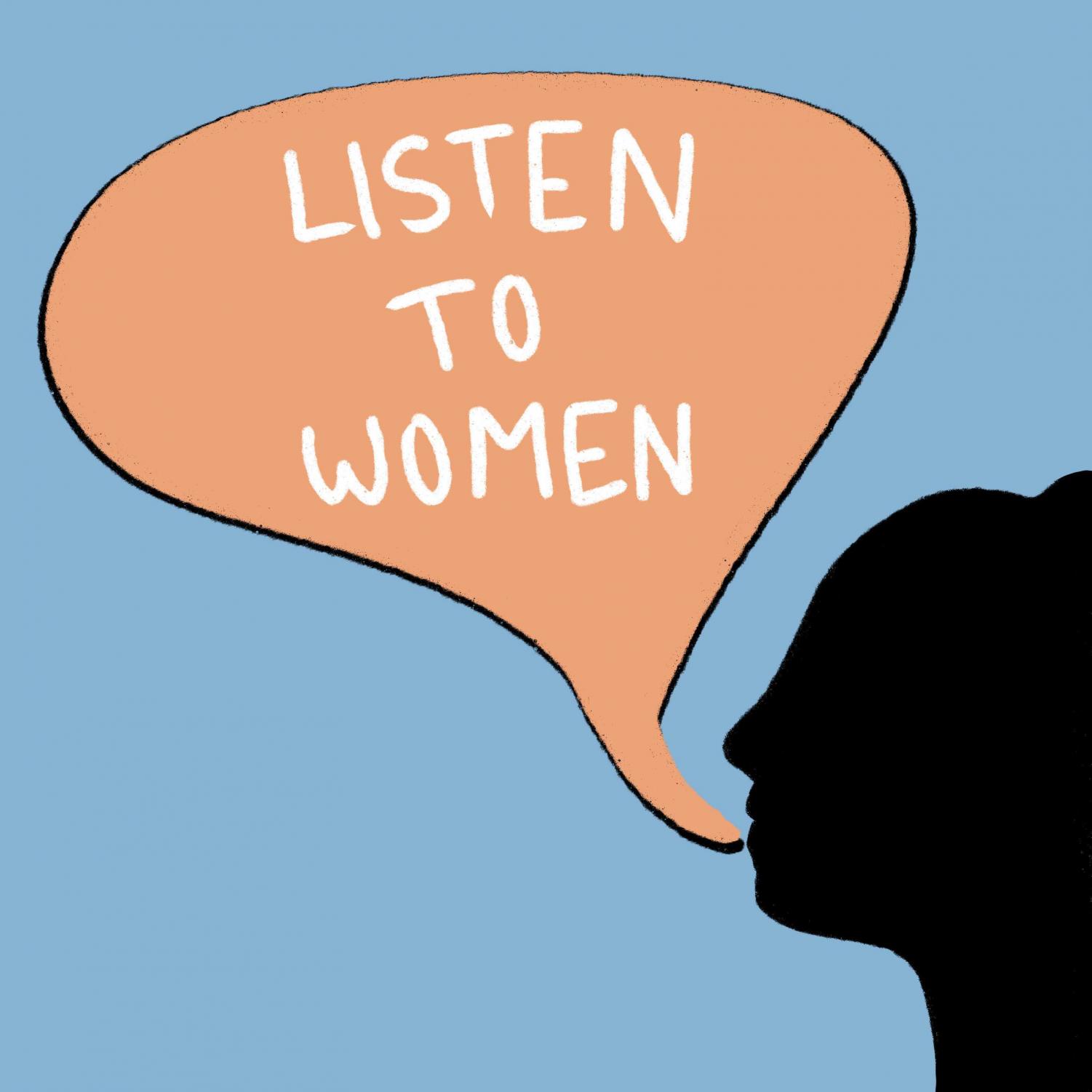Opinion | Stop rationalizing gender-based violence


Warning: This column contains content relating to violence, sexism and racism that some readers may not be comfortable with.
Thirty-three-year-old Sarah Everard was kidnapped while walking home from a friend’s house in London on March 3. Her dead body was discovered 50 miles from where she had last been seen alive in Kent Woodlands. Prosecutors have charged Wayne Couzens, a police officer, with her kidnapping and murder.
Everard’s murder is one of the many cases of police violence against women, with sexual misconduct being the second-most reported complaint nationally. This is especially unsettling as the very people who are supposed to create a sense of security may be the ones posing the threat.
Sarah Everard’s murder reflects a culture that puts women and nonbinary people in a position of inferiority and blame. Whether it be walking home alone at night, not guarding their drinks properly in public or dressing “provocatively,” women and nonbinary people are forced to adhere to the guidelines of a patriarchal and unjust system. It’s time that we stop overlooking this and realize that there is no way to justify the violence that women are forced to endure every day.
Philosopher Audrey Yap describes the phenomenon that “people are most — and sometimes only — willing to accept scenarios of male violence that conform to a narrow paradigm.” This paradigm follows a storyline in which the victim falls into a stereotypically accepted persona, such as a white, blond, attractive woman walking home alone at night, as the abductor takes on the persona of a stigmatized, mentally-ill or pathological stranger. Kate Manne connected Yap’s studies to Everard’s murder in an article for the Atlantic.
“The public can cognize Everard’s story, and therefore mourn her, and protest the violence that took her so wrongly and prematurely,” Manne wrote. “However, people are often unable or unwilling to react similarly to stories that involve less prototypical or ‘perfect’ victims, more sympathetic perpetrators or situations that unfold in a more complicated manner.”
While this unfortunate phenomenon affects women nationwide, Asian American women and women from lower socioeconomic levels are especially susceptible to sexualization and discrimination.
Eight people were killed on March 16 in Atlanta, with six of the victims being of Asian descent and seven being women. This is yet another unfortunate example of the ways that women are prone to sexualization, costing them their lives. This case also exemplifies the stereotypical sexualization of Asian women particularly, as the murderer targeted Asian women and blamed his “sexual addiction” for his wrongdoings, as if this were a rational justification for his actions. Judy Tzu-Chun Wu, a professor of Asian American studies at UC Irvine, commented on how common sexualization of Asian American women is.
“Pop culture has presented women of Asian descent as China dolls, geishas and prostitutes,” Wu said. “Asian American women are racialized and sexualized, and it’s not possible to disentangle those two.”
It’s clear that elements such as race and economic prosperity have the power to change the severity in which these awful acts of discrimination are perceived and taken seriously, which is why it’s so important that the fight against gender-based violence prioritizes women and nonbinary people of all shapes, sizes and backgrounds.
Violence is proven to disproportionately affect women, with an estimated 37% of women facing physical and/or sexual violence from their partner. In fact, within the poorest countries, violence against women is as prevalent as one in two.
The constant fear that women and nonbinary people face is exhausting. I once stumbled across a Twitter thread that read, “Women, imagine that for 24 hours, there were no men in the world. No men are being harmed in the creation of this hypothetical. They will all return. They are safe and happy wherever they are during this hypothetical time period. What would change? What would you do that day?”
The millions of responses are eye-opening and heart-wrenching. Many of the responses listed everyday tasks, such as going to work or to the gym without being harassed or being able to go on a walk without headphones in. Some users posted more specific scenarios.
“Go for a run in the middle of the night. I used to love running at night on a path by the ocean, it was beautiful — but I had creepy incident after creepy incident and the stress ended up overtaking my love of night running,” writes Twitter user Kelly. “With no men, I’d put on my shoes at 10 p.m. and run.”
The protests in Britain that have broken out regarding Sarah Everard’s death and protests supporting Asian American women are extremely necessary for progressing toward change, but the fight is far from finished.
It’s absolutely essential to uplift and amplify the voices of women from all walks of life, especially those who don’t fall into the narrow and stereotypically accepted paradigm, in order to achieve true progress. The highest potential for true change must prioritize the lives of all of those affected.
You can reach Mackenzie at mno14@pitt.edu.
Recent Posts
SGB introduces new governing code bill and addresses rumors of ICE on campus
At its weekly meeting at Nordy’s Place on Tuesday, Student Government Board introduced an omnibus…
Opinion | School should be in the summer
Although this may be controversial, I believe that from this data, it is evident that…
Weathering the storm: Pittsburgh teams have tackled some of the toughest environments
The end of the year in western Pennsylvania is always marked by two things —…
Notes From an Average Girl // Notes on Book Banning
In this edition of Notes From an Average Girl, senior staff writer Madeline Milchman writes…
To Be Honest // Yup, it is that damn phone
In this edition of To Be Honest, staff writer Evin Verbrugge writes about her phone…
Meaning at the Movies | Portraying Toxic ‘Adolescence’
In this edition of Meaning at the Movies, staff writer Lauren Deaton explores the mini-series…
